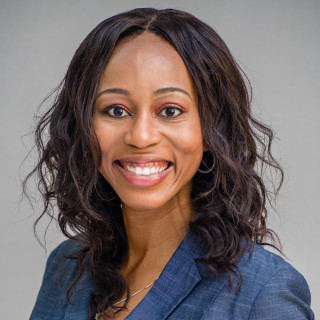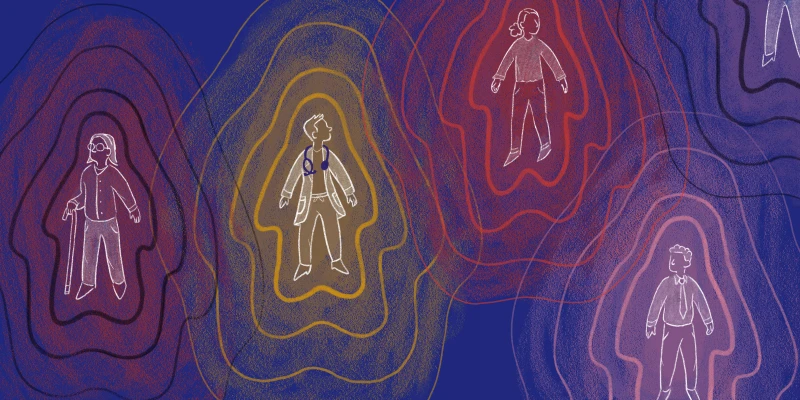
“Wow! I can’t believe I’m here.” I had worked super hard, passed my boards, graduated from med school, and now here I was — a full-fledged doctor. I couldn’t be more thrilled. The start of residency came with a lot of excitement. I had matched at my top choice residency in a city I loved and couldn’t wait to get started. The thought of people calling me Dr. Taylor was something I couldn’t even begin to describe.
“Oh, shoot, I’ve forgotten a lot…” Immediately after starting residency and getting several white coats with my name and 'M.D.' embroidered on them, I quickly realized one thing: I had forgotten a lot. Questions about pathology, pharmacology, and basic etiology of common diseases seemed to elude me. At the start of my fourth year of med school I was rattling off facts like the live version of WebMD. Fast forward to July 1st and here I was struggling to come up with a differential diagnosis for abdominal pain.
“Wait, how do I put in an order?” The hardest thing about residency in the beginning wasn’t even the medicine. It was working the electronic health record. Yes, I am a millennial, but no, I don’t consider myself particularly tech-savvy. In fact, I struggle with finding the on/off switch on most devices. Needless to say, learning how to work the computer systems was a steep learning curve. I had to be taught several times how to prescribe medications and I must have screwed up the admission orders at least half a dozen times before I finally did them correctly. #InternProblems
“Are we sure this patient can take Tylenol?” With residency comes this new doctor title and immediate responsibility. I alone could order something, and it would happen. Imagine that. Going from the ignored med student to the needed doctor was pretty cool. The only problem is that I started to second guess myself. My upper-levels were busy, and I had to start making decisions on my own, but didn’t want to screw anything up. Tylenol is one of the safest pain medications and I definitely sent a few prayers to Jesus hoping no one would die before hitting “submit.”
“Let me talk this over with my attending.” As an intern, I was struggling to remember basic things. Patients would ask me pretty challenging questions and nurses would plead their case for certain medications. I was unsure of what to do. If I’m being honest, I started relying on my attendings and they saved my butt many times. I was grateful, but I started to resent the fact that I was always asking questions and always unsure. What happened to that confidence I had as a fourth-year med student? It was like the more I knew, the more I realized I didn’t know.
“My upper-levels are really smart.” While I was struggling to keep up, my upper-levels were moving with ease. They could answer questions swiftly and correctly. They spit out facts and treatment protocols like they had memorized some doctor handbook. I was in awe. Both impressed that they knew so much and ashamed that I knew so little in comparison. Despite this mixed bag of emotions, I was excited at the thought that perhaps one day I too would possess that level of confidence, knowledge, and efficiency.
“I can’t believe I work this much.” My first rotation was inpatient family medicine and I logged about 62 hours a week. By my third rotation, I was logging almost 80 hours with only one day off a week. There were plenty of days I worked a 15-hour shift only to go home, eat, sleep, then wake up and do it again, and again, and again. When I was on night shift it was even worse. Not only did I have to find ways to stay up throughout the night, I also had to train my body to sleep during the day and find some sort of sanity despite the fact that I barely saw my friends or family.
“Weekends just aren’t the same anymore.” When you work most weekends with only one day off in the middle of the week, weekends aren’t the same. Fridays lose their zeal when you know you’ll be back to work Saturday and Sunday. I had to improvise. When I was delivering babies overnight in the hospital, most weeks I only had Sunday night off. On that day I’d sleep in the morning, go grocery shopping, get my nails done, pick out a couple movies to watch, and drink wine as I read a few chapters in a book. Sounds busy, but these things brought me joy. Being able to pack as much joy as I could into my day off helped me find happiness.
“I can do anything for a month.” Each rotation in my residency is four weeks long. While I loved some rotations, others, not so much. There were plenty of times I was drowning in notes or trying my best not to zone out during hospital rounds. Most times, I was just trying to keep my head above water. Even still, I made it. Some days were great, and I felt like a rock star. On the harder days I’d tell myself “I can do anything for a month.”
“I’m really blessed” Residency can be challenging, and I definitely went through a period of adjusting, but altogether I can’t complain. I work a lot, but I also really love what I’m doing and the impact I’m able to have on patients. Plus, I’m not starving. I’m healthy. I really like my co-residents and my career outlook is great.
Residency is full of different emotions. Regardless of how I feel at any one moment, there is a light at the end of the tunnel. In fact, there might even be one present during the journey as well.
Dr. Altelisha Taylor is a family medicine resident at Emory University in Atlanta, GA. She has a passion for primary care sports medicine and enjoys writing articles on personal finance and health policy for several other media outlets including her blog, Career Money Moves.







